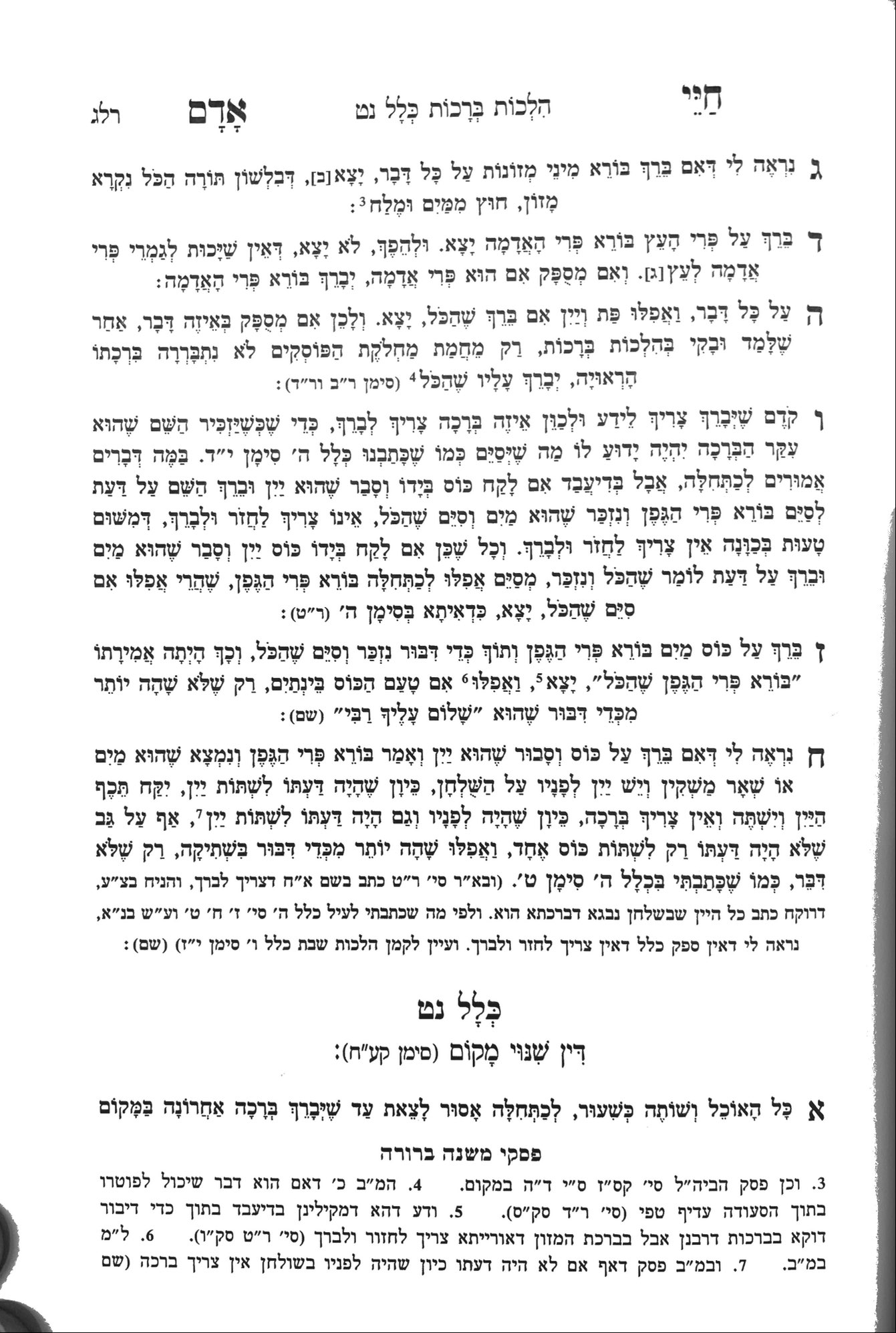We are continuing in siman 6. We learned yesterday that the Gemara discusses a situation in which a person begins a bracha incorrectly and realizes their mistake. The Gemara discusses whether we follow the person’s original bracha or their corrected version. The Gemara does not resolve the question.
We learned that Rashi understands the safeik of the Gemara as occurring by the words baruch atah Hashem, and that if a person does not have the correct kavanah for the bracha they intend to make at that point (e.g., their intent is to make a hagefen but in reality they need to make a shehakol), maybe they must start again.
The Chayei Adam writes that bedieved, one does not have to repeat the bracha, because of the general rule that safeik brachos le’hakeil. The Chayei Adam points out that certainly in the opposite case, where one is holding wine, began the bracha with the intent to recite shehakol, and then realized after Hashem’s name that the correct bracha is hagefen, they are yotzei. Since shehakol works to exempt all foods, the person is yotzei either way.
In siman 7, the Chayei Adam discusses the halacha in the Rif’s understanding of the Gemara. The Rif understood that the safeik of the Gemara as regarding a person who finished their incorrect bracha, and then immediately corrected themselves toch k’dei dibbur.
The Chayei Adam writes that in such a case, one is also yotzei bedieved. Additionally, even if one takes a sip, as long as they correct themselves toch k’dei dibbur of the end of the bracha they are yotzei.
The Chayei Adam defines toch k’dei dibbur as the amount of time it takes to say the words “shalom alecha rabi”. In this case as well, the reason one does not repeat the bracha is because of the general rule that safeik brachos le’hakeil.
The Mishnah Berurah points out that we only apply the rule safeik brachos le’hakeil in a case of a bracha derabbanan. In a situation of a bracha deoraysa, such as birkas hamazon, if one encountered one of the sefeikos mentioned above, they would have to start again. For example, if one said baruch atah Hashem with the intent to say borei nefashos and then realize they washed, they must start from the beginning of the bracha.
However, if one had intent to say al hamichya, and only realized they must recite birkas hamazon after saying baruch atah Hashem, the halacha depends on a machlokes Rishonim. Some Rishonim hold that one must recite all three brachos of birkas hamazon mideoraysa, while others hold that only the first bracha is mideoraysa, and the subsequent brachos are miderabanan. We will learn more about this machlokes in the coming shiur, be’ezras Hashem.
Summary
-
Lechatchilla, a person should have kavanah for the bracha they are about to recite before beginning to recite it.
-
Bedieved, regarding a bracha derabanan, if a person had kavanah for a different bracha when they recited Hashem’s name, they are yotzei.
-
Bedieved, regarding a bracha derabanan, if a person recited the wrong bracha, but corrected themselves toch k’dei dibbur, they are yotzei.
-
Toch k’dei dibbur is defined as the amount of time it takes to say “shalom alecha rabi”.
-



